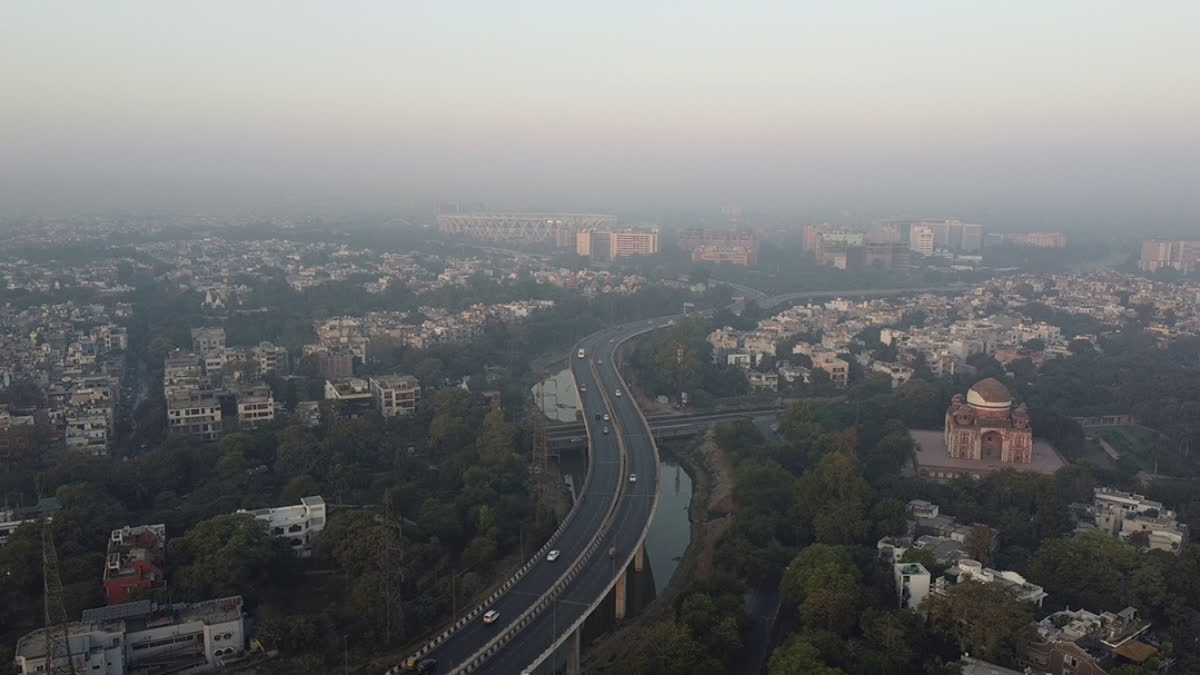New Delhi: A day after the national capital recorded ‘moderate’ air quality, the city’s Air Quality Index with 220 on Wednesday slipped back into the ‘poor’ category, with forecasts predicting similar conditions for the next two days.
The 24-hour average AQI on Tuesday was recorded at 234, a noticeable decline from Monday’s reading of 186, according to the Central Pollution Control Board (CPCB).
Out of 38 air quality monitoring stations in the city, 27 registered AQI in the ‘poor’ category, with two reporting ‘very poor’ levels. The remaining stations recorded ‘moderate’ air quality. The primary pollutant on Tuesday was PM2.5, with concentrations reaching 87.9 µg/m³ at 3 pm. These fine particles, small enough to penetrate deep into the lungs and bloodstream, pose serious health risks, especially for vulnerable populations.
#WATCH | A thin layer of fog covered parts of Delhi as the minimum temperature dropped to 7°C, as per IMD.
— ANI (@ANI) December 11, 2024
Morning visuals from India Gate and Kartavya Path pic.twitter.com/sfeMsYsvuG
Naresh Kumar, a doctor at a private clinic, highlighted the health hazards posed by prolonged exposure to poor air. “The persistent presence of PM2.5 in the air increases the risk of respiratory and cardiovascular diseases, especially among children and the elderly. Immediate mitigation measures are needed to address local emission sources,” he said.
The Decision Support System (DSS), a tool to analyse pollution sources in Delhi, resumed operations on Monday after a two-week hiatus. Data from the DSS revealed that local emissions contributed 20.2 per cent to Delhi’s PM2.5 levels on Tuesday, with non-local sources accounting for the rest. Forecasts predict the contribution of local emissions to drop slightly to 15.6 per cent on Wednesday, but overall air quality is expected to remain in the ‘poor’ category.
Commenting on the situation, Kanika, a Delhi-based environmental activist, said that while seasonal changes do play a role in air quality, it’s high time for stricter implementation of pollution control measures. She said, "Public awareness and collective action are key to reducing emissions and protecting public health.”
Delhi experienced some improvement in air quality earlier this month, shifting from ‘very poor’ to ‘moderate,’ but conditions have remained unstable since Sunday, fluctuating between ‘moderate,’ ‘poor,’ and ‘very poor.’ Meanwhile, Tuesday’s temperatures ranged from a maximum of 23°C to a minimum of 8°C, both two notches below normal.
With air quality showing no immediate signs of significant improvement, experts emphasise the need for urgent interventions and better compliance with pollution regulations to safeguard public health.
Read More:



